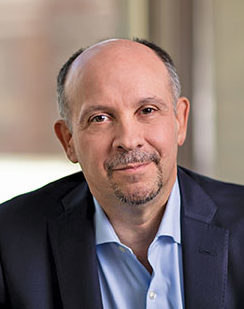If adversity is a great teacher, the COVID-19 pandemic is certainly one of the biggest learning opportunities in decades. Among other lessons, it taught us the “essential” nature of the workers we often ignore or take for granted—not just nurses and other health care professionals, but delivery drivers and IT workers, garbage collectors, and grocery clerks.
It reminded us, sometimes with blunt-force cruelty, that life is fragile and that we must hold loved ones dear. It taught us new ways to connect—and, yes, new ways to spend our alone time.
Perhaps most obviously, it taught us the importance of flexibility. In times of crisis and uncertainty, there may be no greater strength than one’s ability to adapt, to respond quickly—but wisely—to changing circumstances.
 And the pandemic certainly changed the nation’s economic circumstances, in profound ways. Just a few concrete examples:
And the pandemic certainly changed the nation’s economic circumstances, in profound ways. Just a few concrete examples:
- It caused substantial short-term job loss and led to a large-scale redefinition of jobs that is likely to last for years. This creates a huge need for displaced workers to retrain as quickly as possible.
- It highlighted a disturbing dearth of qualified job applicants in many areas, including health care, child care, K-12 education, supply chain management, logistics, warehousing, and information technology.
- It supercharged the work-at-home movement, convincing more and more employers that productivity doesn’t require fully staffed offices.
- It helped push the federal government to finally fund a national infrastructure program, which promises to create millions of jobs in construction and related fields.
- It contributed substantially to what many experts see as a coming recession, making the rising cost of a traditional college education less and less attractive to many Americans.
All of these developments—good and bad—have turned our focus to one solution that, until recently, got far less attention than it deserves: short-term education and training programs. Such programs, including apprenticeships and licensure programs, lead to industry-recognized certificates and certifications—high-quality, workforce-relevant credentials that can boost careers and change lives.
According to the Center on Education and the Workforce at Georgetown University, 60 percent of the 15 million jobs expected to be created by the recently enacted federal infrastructure law will require no more than six months of training.
Other recent research underscores the value of short-term credentials, showing that such credentials bring major benefits to those who earn them, including a greater likelihood of employment (72 percent vs. 64 percent). And individuals who earn credentials taking between one and two years to complete can expect to increase their earnings by as much as 22 percent.
These facts, along with a wealth of other recent economic data, confirm another lesson from the pandemic: that short-term credential programs—when done right—are a vibrant and vital tool for long-term prosperity.
This issue of Focus magazine is designed to drive home that lesson by shining the spotlight on just a few of these promising programs. As always, Focus offers substantive slices of real life: stories from around the country that reflect the reality of today’s students. For instance, in this issue:
- You’ll meet Jake Taber of Traverse City, Mich., a young man whose affinity for video games—coupled with an early, relentless pursuit of IT credentials—is helping him forge a promising career in information technology. Along with the many industry-recognized certifications he’s already earned at age 21, Taber also has an associate degree, thanks to a program in which Michigan community colleges award academic credit for industry credentials.
- You’ll also get to know Jack Camp, a 40-year-old truck driver from Peoria, Ill., who left his troubled youth behind—and literally found a new road—because of the Illinois Workforce Equity Initiative. Camp, who grew up in poverty as the son of drug-addicted parents and was incarcerated himself for more than a decade, is now a focused and valued employee of a local delivery firm. The state-funded workforce program gave Camp a huge boost, allowing him to earn his commercial driver’s license in just six weeks—at no cost.
- Finally, you’ll meet Catiana “Cat” Beaver of Victorville, Calif., a torch-wielding 22-year-old who, with a little help from the state, has bonded fully with her career choice: welding. Beaver, who dropped out of community college because she felt she was “being pushed into a desk job,” now attends a short-term pre-apprenticeship program at Victor Valley College. She’s being aided by a grant from the California High Road Construction Careers program, a state-funded effort to direct more residents into construction jobs.
As always, this issue of Focus offers compelling videos of students and links to related material. And everything in this issue has one purpose: to emphasize the value of short-term credential programs—for tens of thousands of individual Americans, and for the nation as a whole.
Frankly, it’s a bit of a mystery that their true value hasn’t already been fully recognized and realized. Fortunately, that’s changing, perhaps because every day—certainly every economic crisis—brings more evidence that these programs create promising pathways to a better future.

Jamie Merisotis
President and CEO Lumina Foundation
